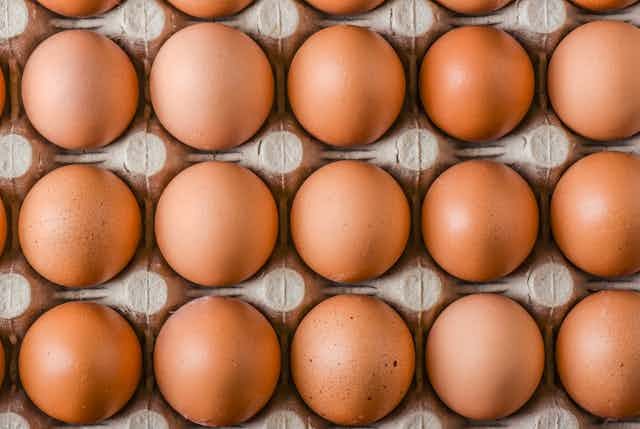Are you online searching for the current egg prices in Nigeria?
Given the importance of eggs in many Nigerians’ diets, this subject continues to be relevant.
Eggs are a common food item in Nigeria, consumed by all demographics from households to restaurants and food vendors.
However, swings in egg costs can affect both consumers and companies.
In this post, we will look at the present price of eggs in Nigeria, the variables determining these costs, and the repercussions.
Factors influencing current egg prices
Several variables contribute to fluctuations in egg prices in Nigeria
These factors include:
1. Supply-Demand Relations
The fundamental economic principle of supply and demand has a considerable impact on egg pricing in Nigeria. Fluctuations in egg supply, which are commonly driven by weather conditions, disease outbreaks in poultry farms, and seasonal fluctuations, can have an impact on prices. Similarly, swings in customer demand, particularly during holiday seasons or economic downturns, can cause price changes.
2. Production Costs
The final retail price of eggs is affected by the cost of production, which includes feed, labor, infrastructure, and poultry healthcare bills. Increases in production costs, such as increased feed prices or power bills, can force egg producers to raise their prices in order to remain profitable.
3. Transport and Distribution Costs
The transportation and distribution network has a significant impact on egg costs, particularly for eggs produced in rural areas and marketed in urban centers. High transportation expenses, fuel prices, and logistical issues can all increase the ultimate retail price of eggs.
4. Government Policy and Regulations
Tariffs, taxes, subsidies, and rules governing chicken and egg production can all have an impact on prices. Changes in policies, particularly those impacting inputs such as chicken feed and veterinary services, can have an impact on egg pricing.
What Is the Current Egg Price In Nigeria?
As of today, the price of eggs in Nigeria changes according to some factors, including egg size and place of purchase.
A crate of 30 eggs costs between ₦2,500 and ₦4,000.
Egg Sizes Available in Nigeria
In Nigeria, eggs come in a variety of sizes to meet the needs of a wide range of consumers. These sizes include:
- Small: Small-sized eggs are popular for specialized uses in cooking or among consumers who prefer lesser quantities.
- Medium: Medium-sized eggs are versatile and adaptable to a variety of cooking ways, making them a popular choice among customers.
- Jumbo: Jumbo-sized eggs are larger and are generally preferred by customers looking for larger amounts or nutritional content.
Impact on Customers and Businesses
The fluctuation of egg prices in Nigeria has various repercussions for both consumers and companies.
Consumer Spending Patterns
Price changes for eggs can have an impact on household budgets, especially for low-income families who rely on eggs for protein. Higher egg prices can force people to modify their buying habits, perhaps diverting dollars away from other needed commodities.
Business Operations
Egg price changes can have an impact on operational expenses and profit margins in the food and hospitality industry, including restaurants, bakeries, and food sellers. To deal with increased egg prices, these businesses may need to adjust menu prices or look into other products.
Economic Stability
Egg price stability is linked to Nigeria’s overall economic stability. Food price fluctuations, like those for eggs, can have an impact on inflation rates and consumer confidence, affecting the broader economy.
In Summary
What Is the Current Egg Price In Nigeria? This question shows the importance of eggs in Nigerians’ daily lives, as well as the larger effects of shifting egg prices.
As of today, the price of eggs in Nigeria goes from ₦2,500 to ₦4,000 per crate, based on size and location.
Understanding the elements that influence egg prices, such as demand and supply patterns, production costs, transportation charges, and government laws, is essential for consumers, businesses, and policymakers alike.
Moving forward, measures to stabilize egg prices while ensuring affordability and accessibility are vital for improving food security and economic success in Nigeria.






